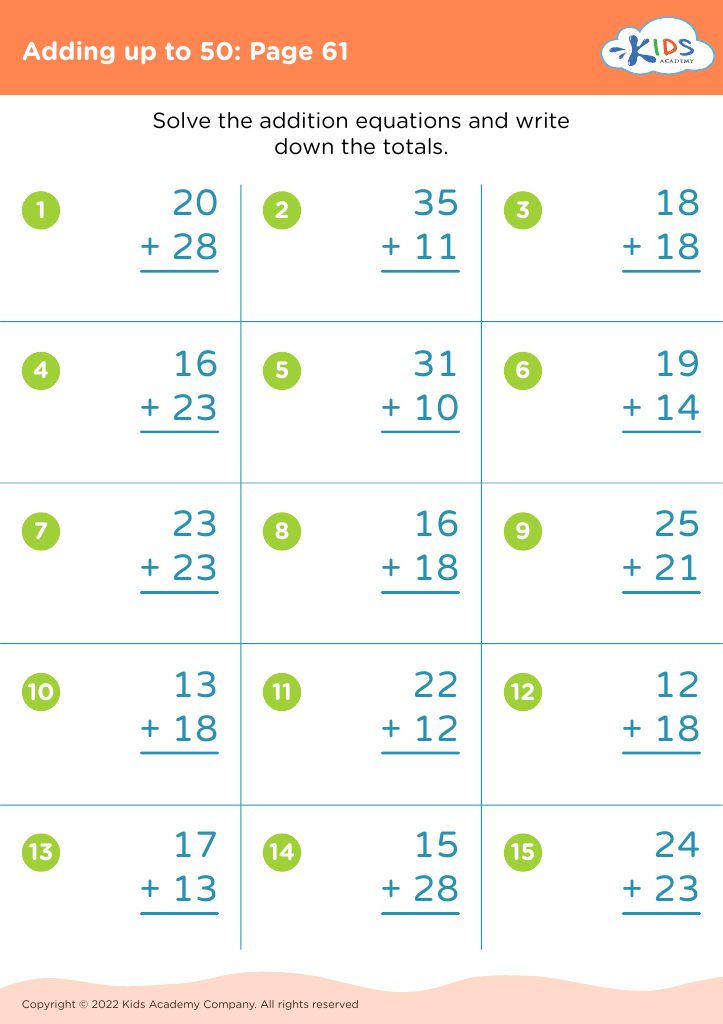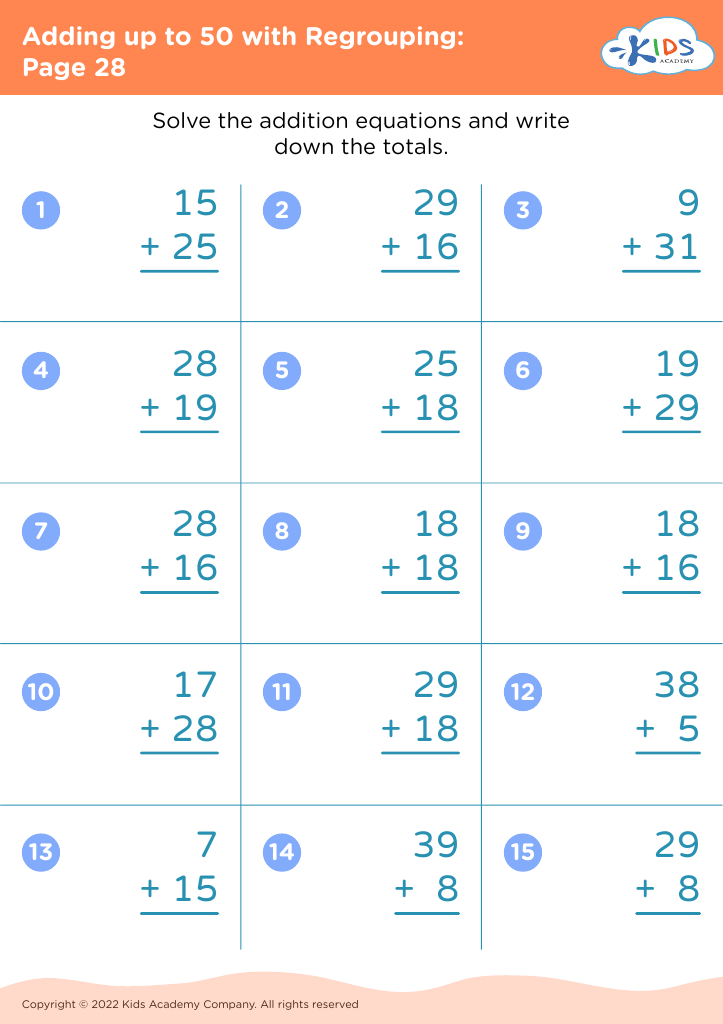Addition skills Adding up to 50 Worksheets for Ages 5-7
7 filtered results
-
From - To
Our "Addition Skills: Adding Up to 50 Worksheets for Ages 5-7" offer engaging exercises designed to build foundational math skills in young learners. These worksheets provide a variety of fun, interactive problems to help children practice and master addition within 50. Perfect for classroom use or at-home learning, these activities support cognitive development, number sense, and essential arithmetic skills. With colorful illustrations and age-appropriate challenges, our worksheets make math exciting and accessible, ensuring children gain the confidence they need to advance in their educational journey. Unlock your child’s potential with our expertly crafted addition resources.
Parents and teachers should pay special attention to the development of addition skills up to 50 for children aged 5-7, because these foundational math skills foster both academic and practical success. At this formative stage, children are natural explorers with a keen ability to grasp basic arithmetic. Learning to add numbers up to 50 allows children to understand numerical relationships and patterns, which are critical for future math concepts such as subtraction, multiplication, and division.
Moreover, math skills promote cognitive development, enhancing children's ability to think logically and solve problems creatively. Such skills are not limited to the classroom; they are crucial life skills. For instance, understanding addition helps children with everyday activities like counting money, measuring ingredients while cooking, and even sharing toys or food equally.
Early proficiency in addition builds confidence, making children more likely to engage positively and successfully with future math challenges. Teachers equipped with engaging methods and parents who offer supportive practice at home can make math both enjoyable and relevant. The collaboration between home and school environments further solidifies a child's mathematical foundation, contributing to a more equipped and confident learner ready for future academic pursuits and real-world applications.























